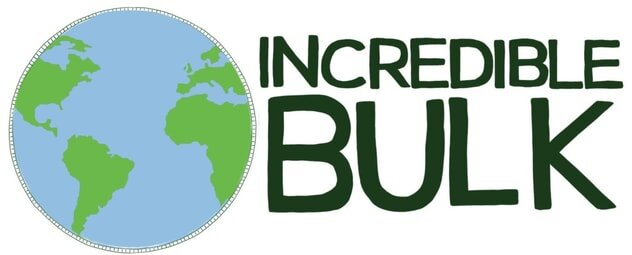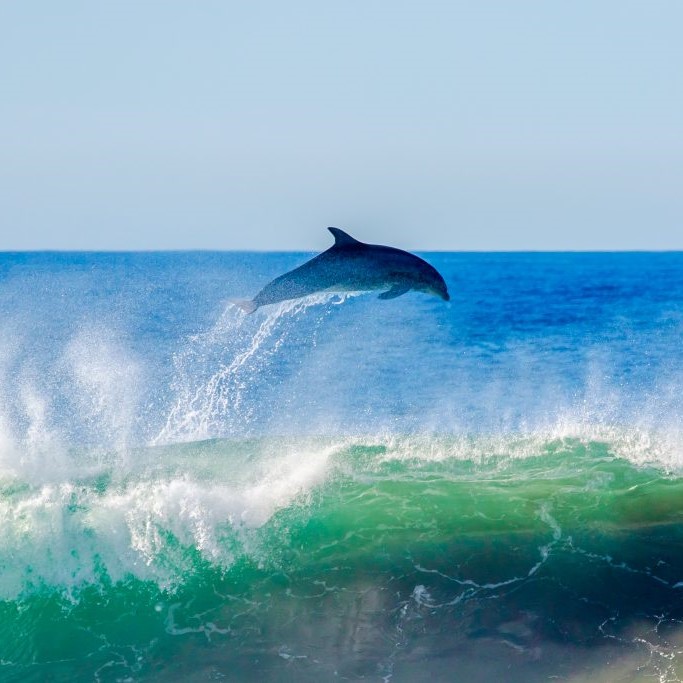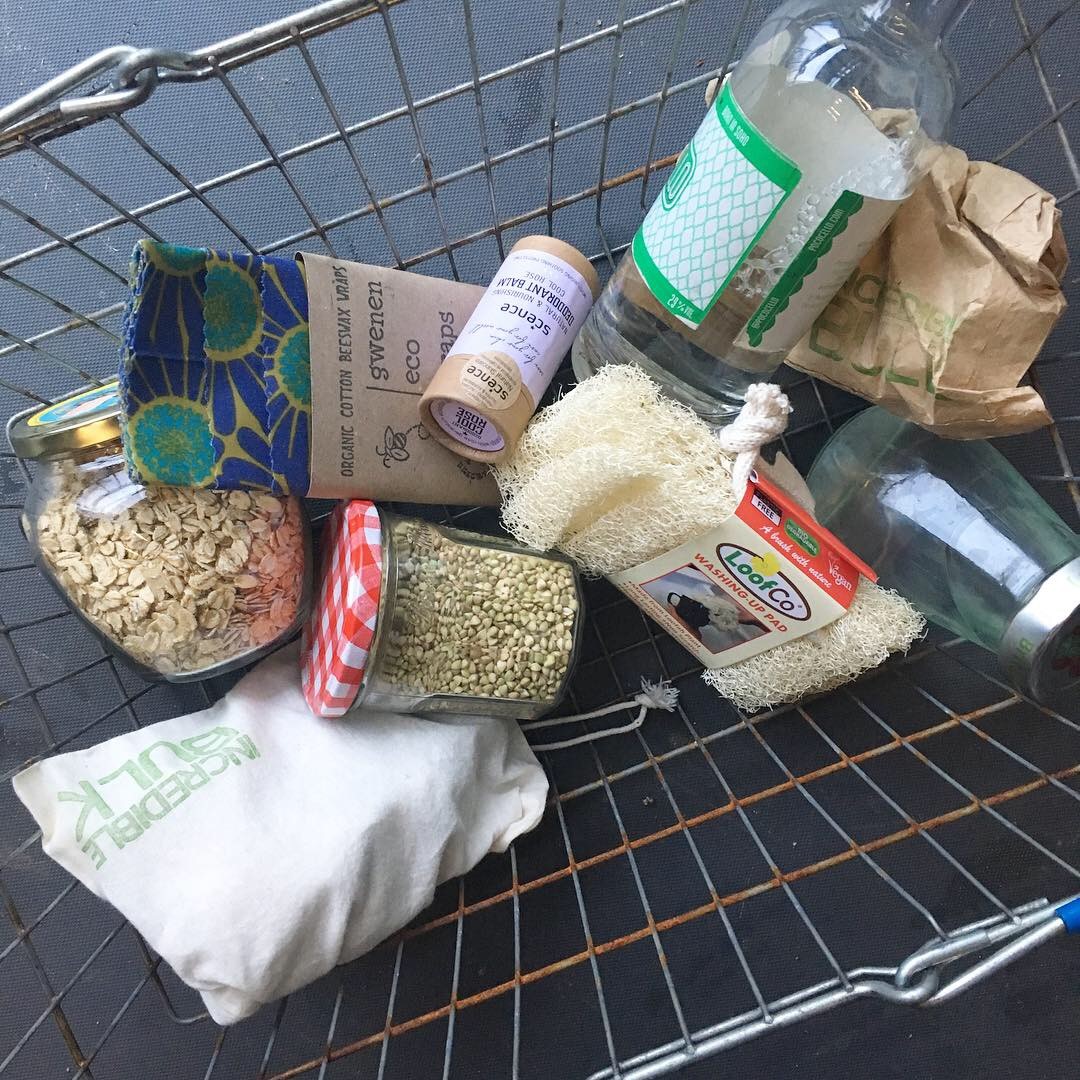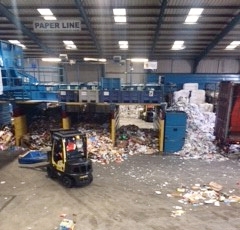Heres our round up of all the great people, businesses and events in Cornwall we’ve come across to help you on your zero waste journey. We'll be keeping it updated and if you have any suggestions to add please get in touch so we can add it!
Bulk / Refill / Zero Waste Shops : take along your own containers and avoid single-use packaging
All You Can Eco: Perranporth
Incredible Bulk : various locations and home delivery
Lets Get Naked Refill : Launceston
No Wrap No Crap : Liskeard
Nourish : Hayle
ReFILL Shop : Bude
The Good Lyfe : Newquay
The Green Forge : St Agnes
The Happy Weigh: various locations West Penwith
The Refill Store : Truro, Goonhavern and Par Market
The Weigh Inn : Penzance
Un_Rap : Falmouth
Natural Health Stores with some refills available:
Archie Browns : Truro, Penzance (some refill options)
Cornish Health Store : Redruth (some refill options)
The Natural Store : Falmouth, Helston, St Austell (some refill options)
Farm Shops and Veg Boxes : Great for fresh local and usually unwrapped fruit and veg, also be sure to keep an eye out while driving around as there are loads of great roadside stalls offering fresh produce not packaged
Baileys Country Store : Penryn (some refill options too)
Bosavern Community Farm : Penzance
Camel CSA : Wadebridge Community veg box
Celtic Produce : Bodmin (has refill options too)
Cusgarne Farm Shop : Cusgarne, Truro
Gear Farm : Helston
Penryn Produce : Veg and Zero Waste Box
Perran-ar-worthal fruit & veg Stall : based on the main A39 Truro-Falmouth road, selling locally grown products
Soul Farm: Falmouth CSA Veg Boxes
The Veg Shop : St Agnes
Tre, Pol & Pen : Lezant (has refill selection too)
Trevaskis Farm : Hayle
Farmers Markets : Great to get select items without packaging as well as local produce that has done little travelling. Most stall holders will listen to your reduced packaging requests and help where they can - don't be shy to ask! You also may come across us - an added bonus!
Devoran Market : Second Saturday of the month 9.30-12
Helston Farmers Market : First Saturday of the month 9.30 - 12
Lostwithiel Farmers Market : Fourth Saturday of the month 10 - 1
Sennen Market : Tuesdays 10-1
The Food Barn Tregew : Every Saturday 9-1
Out & About : Awesome places we've come across that have a sustainable / zero waste vibe
Alice In Scandiland: Beautiful homewares store in Lostwithiel
Cornwall Scrap Store: A treasure trove of goodies! Cornish Scrap Store take unwanted ‘waste’ and offer it to schools, community groups and individuals to upcycle!
Cotna : Retreat space that also puts on interesting diy workshops such as foraging and sourdough baking
Jackson Foundation Gallery : Environmentally focused gallery space in St Just created by Kurt Jackson
Make A Mends : Learn all about how to mend and care for your clothes in this cute shop on Redruth High Street.
Miss Molly’s Tea Room : A treasure trove of vintage, retro and antique furniture, appliances, clothing - be prepared to spend a few hours getting lost in this place!
Mooon Milk Parlour : Refill your milk! Found at St Buryan
Morva Marazion : Cute gift shop that stocks wide selection of Cornish products with minimum plastic packaging
Mount Pleasant Eco Park : A beautiful green spot offering workshops and events, they also have volunteer fridays offering unique hands-on training in a variety of sustainable land-based skills
No 56 : Beautiful homewares store that stocks zero waste / sustainable products
Newquay Community Orchard : A beautiful spot, often has fresh produce for sale and they offer various sustainable workshops and events. You can also volunteer if you have green fingers!
Nude Canteen: Delicious food and veg shop
Olde Rope: Great little eco boutique in Falmouth, also runs events such as clothes swaps
One Blue Eye: Local plastic recycler, turning plastic waste into treasures! Shop in Helston.
Potager : Cafe and garden spot, also offering workshops and volunteering opportunities
Trevisker Garden Centre : Garden centre in Padstow with a refill station for liquid fertiliser!
The Green Waste Company: Based in Hayle and Roche The Green Waste Company offer large scale recycling facilities as well as a service where you can pick up compost with your own trailer - no more bags of compost!
The Queens at 46: Zero waste upcycled clothing shop in Camborne, workshops and classes available too!
Ugly Butterfly : A fine dining restaurant in Carbis Bay striving to end food waste.
Vega: Vegan cafe based in Tintagel. They recycle their waste, all of their food waste goes to feed rescued pigs!
Cornish Brands : a shout out to brands based in Cornwall that are working with a commitment to zero waste that can help you on your journey
Behaviour Change Cornwall : Ghost net bracelets
Castaway Ropeworks : Products made from ghost gear
Circular & Co : these guys don't believe in waste. They design, develop, produce and sell a wide range of products including the R Cup reusable coffee cup, bird feeders, house signs and flower pots made from recycled redundant materials
Beauty Kubes : Organic, plastic free shampoo cubes
Cornish Skin Food : Rachel makes dreamy natural skin care products and from the start of this year moved away from plastic packaging to aluminium tubs and paper wrap
Finisterre : a clothing brand all about sustainability, always looking to push the boundaries in the collections they create
Fishy Filaments : recycle fishing nets into engineering grade filament for 3D printing
Fourth Element : Technical suits and swimwear with a focus on doing everything they can to preserve oceans for the future
Francli Craftwear : Beautifully crafted rucksacks, craftwear and leather goods with an emphasis on repair and remake
Frugi : On a mission to show the world that beautiful children’s clothing can be fun AND ethically sourced
Jacks Kombucha : Traditional small batch kombucha made in Cornwall, refills available!
Jacques Cabin Furniture : Contemporary furniture made using reclaimed materials
Lin Lovekin Baskets: Traditional willow baskets made in Cornwall, great for your refill shopping!
Otter Surfboards: Make, commission or shop wooden surfboards, bodyboards and handplanes!
Roobarb’s: Delicious Asian inspired vegan meals made from surplus unwanted produce
Sapling & Bud : for all your succulent and plant needs - all come in recycled plant pots
Scence : Natural skin care made in Falmouth, all in compostable cardboard packaging
Smartie Lids On The Beach : Beautiful pieces of art made from plastic found on Cornish beaches.
Tinkebu : Sustainable handcrafted wooden toys
Wasted Apple : Cider made from apples that would have gone to waste
Waterhaul : Products made from ocean plastic
West Country Tea Co : plastic free teas, blended in Newquay
Wild Tribe Heroes : Series of children’s books on the ocean plastics problem
Cornwall Specific Online Guidance : Great for both insight and sharing zero waste ideas.
Cornish Plastic Pollution Coalition : Facebook group to help groups and individuals in Cornwall work together to find targeted local solutions to the marine litter issue
Journey to Zero Waste. Plastic Free Cornwall : Facebook group for those living in Cornwall looking to reduce their waste
Journey to Zero Waste Cornwall (UK) : Facebook group for all living in Cornwall interested in or working towards a more zero waste lifestyle
Minimal Impact Kernow : A blog by Adele Morgan who lives a zero waste lifestyle in Cornwall
ReFILL Cornwall : download the app to find water refill stations near you
Campaigns and Groups : taking zero waste out of the home and onto the streets / beaches, a great way to get involved and learn more
#2minutebeachclean : Community of beach lovers rolling up their sleeves to help rid the world’s beaches of marine litter and plastic pollution, two minutes at a time
Beach Guardian : A Community Interest Company organising beach cleans and information events
Bude Cleaner Seas Project : Bude Cleaner Seas Project is working together with the local community to give Bude the cleanest water quality and the cleanest beaches in Cornwall
Clean Cornwall : Helping to make a cleaner Cornwall
Clean Ocean Sailing : Raising awareness about ocean plastics
Fathoms Free : A volunteer group of marine conservationists running diving and beach clean events
Final Straw Cornwall : A campaign to rid Cornwall of single use plastic straws and raise awareness of the damage single use plastics are causing to our environment
Surfers Against Sewage : An environmental charity based in St Agnes protecting our oceans, find your local beach clean events and plastic free guardians for ways to get involved
Odyssey Innovation : Collecting ocean plastic to recycle into kayaks
Packshare : App to help you upcycle your packaging to people who need it
Repair Cafe : take along items you need fixing, one in Falmouth and Liskeard
Upcycle Kernow : Based in Portreath, offering creative upcycling workshops and events as well as some refills available!
We hope these help you on your zero waste journey so we can keep Cornwall beautiful and waste free- let us know how you get on!
For guides across UK check out:
beeco
pebble magazine
plastic free net
refill
the zero waste network
Back to Blog homepage










































